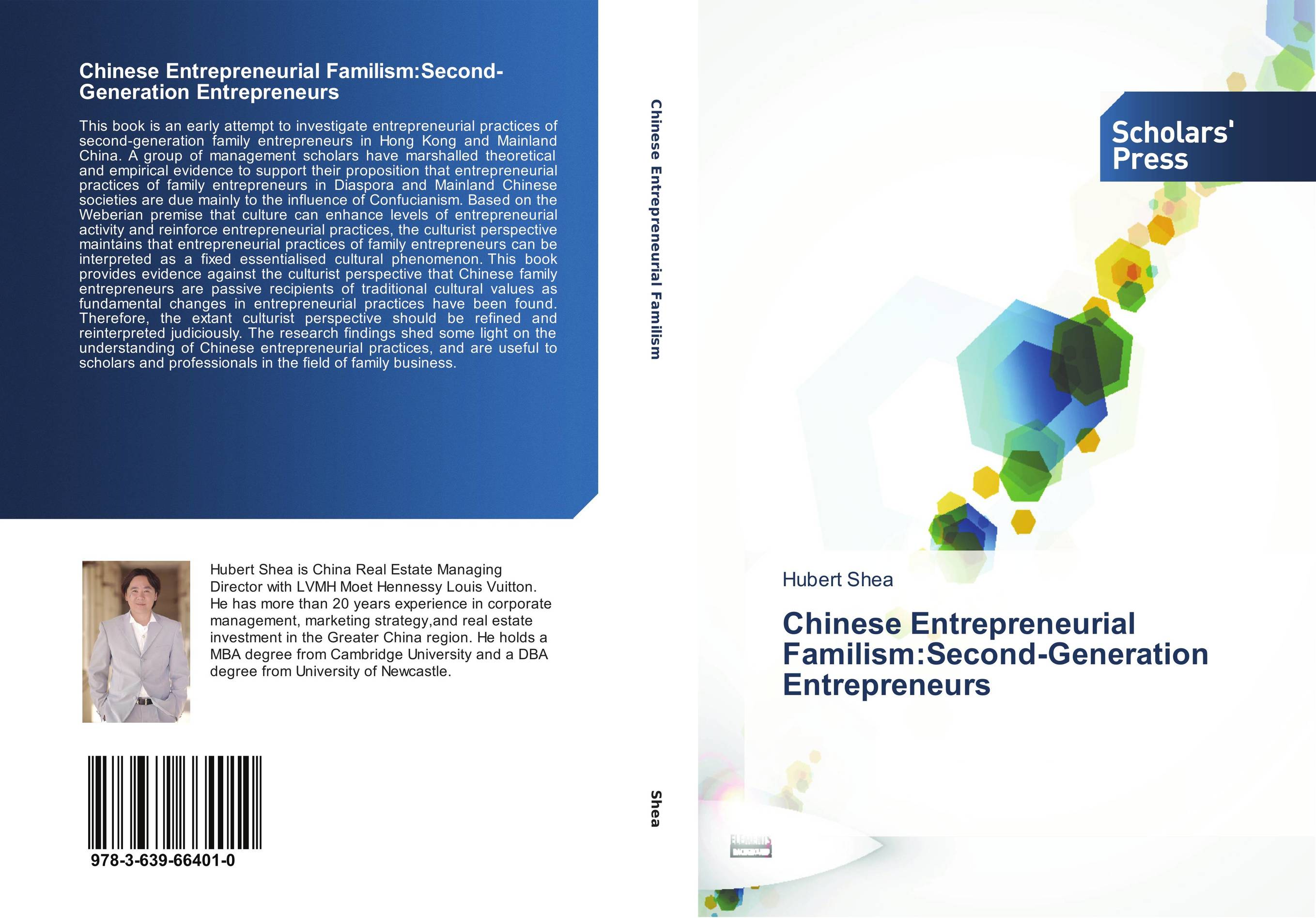| Поиск по каталогу |
|
(строгое соответствие)
|
- Профессиональная
- Научно-популярная
- Художественная
- Публицистика
- Детская
- Искусство
- Хобби, семья, дом
- Спорт
- Путеводители
- Блокноты, тетради, открытки
Chinese Entrepreneurial Familism:Second-Generation Entrepreneurs.

В наличии
| Местонахождение: Алматы | Состояние экземпляра: новый |

Бумажная
версия
версия
Автор: Hubert Shea
ISBN: 9783639664010
Год издания: 2014
Формат книги: 60×90/16 (145×215 мм)
Количество страниц: 328
Издательство: Scholars' Press
Цена: 42408 тг
Положить в корзину
Позиции в рубрикаторе
Сферы деятельности:Код товара: 138399
| Способы доставки в город Алматы * комплектация (срок до отгрузки) не более 2 рабочих дней |
| Самовывоз из города Алматы (пункты самовывоза партнёра CDEK) |
| Курьерская доставка CDEK из города Москва |
| Доставка Почтой России из города Москва |
Аннотация: This book is an early attempt to investigate entrepreneurial practices of second-generation family entrepreneurs in Hong Kong and Mainland China. A group of management scholars have marshalled theoretical and empirical evidence to support their proposition that entrepreneurial practices of family entrepreneurs in Diaspora and Mainland Chinese societies are due mainly to the influence of Confucianism. Based on the Weberian premise that culture can enhance levels of entrepreneurial activity and reinforce entrepreneurial practices, the culturist perspective maintains that entrepreneurial practices of family entrepreneurs can be interpreted as a fixed essentialised cultural phenomenon. This book provides evidence against the culturist perspective that Chinese family entrepreneurs are passive recipients of traditional cultural values as fundamental changes in entrepreneurial practices have been found. Therefore, the extant culturist perspective should be refined and reinterpreted judiciously. The research findings shed some light on the understanding of Chinese entrepreneurial practices, and are useful to scholars and professionals in the field of family business.
Ключевые слова: family business, Family entrepreneurs, entrepreneurial familism, Hong Kong and mainland China, culturist perspective, Confucianism



